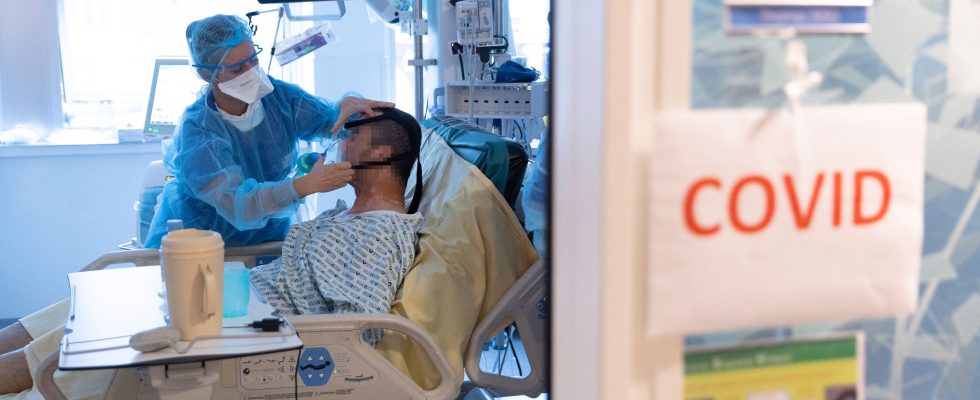Fatigue, cognitive disorders, “brain fog”… According to theWorld Health Organization (WHO), around 10 to 20% of patients infected with Sars-CoV-2 suffer from long Covid, and are still experiencing its many symptoms today.
This pathology, considered an authentic disease by the Committee for Monitoring and Anticipation of Health Risks (Covars) last November, is the subject of various scientific studies. The latest, published this Friday, January 19 by researchers from the University and Hospital of Zurich (Switzerland) in the journal Sciencecould facilitate its detection and treatment.
By analyzing the blood of 113 people with Covid-19, 40 of whom were affected by persistence of symptoms six months later, scientists discovered a modification of the proteins present in the blood of patients with long Covid. An immune dysregulation that researchers explain by “increased complement activation” – a group of proteins participating in the reaction of the immune system and helping to fight infections.
A “basis for new diagnostic solutions”
“In patients with long Covid, the complement system does not return to the resting state as it should,” explained the head of the study, Onur Boyman, to the Swiss press agency Keystone-ATS , quoted by the Swiss daily The weather. This group of proteins thus activated “attacks healthy cells in different organs and damages or destroys them,” continues the specialist in immunology.
According to the authors of the study, these results could serve as a “basis for new diagnostic solutions” for long Covid, which has so far been difficult to identify. However, the process used for these analyzes remains complex and cannot be implemented in all hospitals.
Furthermore, these discoveries could contribute to the search for a treatment. The Swiss researcher notes that “there are already companies developing complement inhibitors”, making it possible to attenuate the action of this component of the immune system. On the other hand, the study does not decide on the potential effectiveness of these drugs against long Covid.
Sars-CoV-2 can persist in the body
Already, last December, a study published by the Pasteur Institute in the journal Nature Immunology affirmed that like HIV, Sars-CoV-2 could persist in the body “in a discreet and undetectable manner”. Researchers found traces of this virus in the lungs of certain individuals up to eighteen months after infection. This persistence, according to the authors of the study, seems linked to a failure of innate immunity, which allows the body to defend itself against infectious agents immediately.
A few months earlier, in September, researchers revealed “concrete evidence that different organs undergo changes” after hospitalization linked to Covid, in a study published in the Lancet Respiratory Medicine. For example, specialists have identified lesions in the white matter of the brain, a phenomenon which can be associated with slight cognitive decline.
